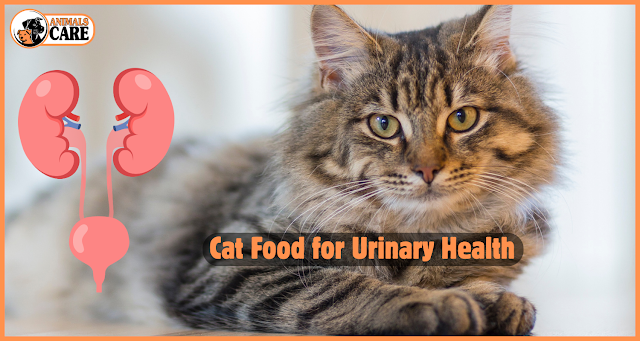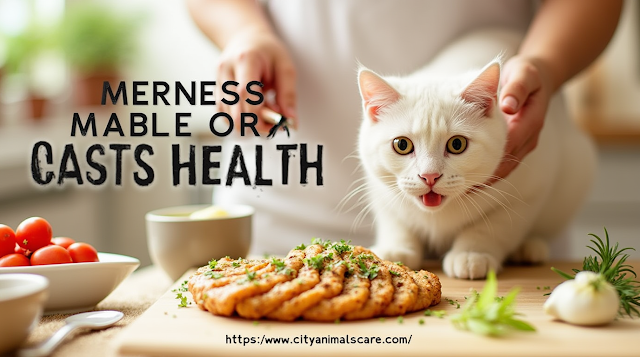Cat Food for Urinary Health: Are You Feeding Right?
If your cat has ever struggled with urinary problems, you know the frustration. Frequent trips to the vet, costly treatments, and watching your cat suffer—it’s a stressful ordeal. But does switching to cat food for urinary health truly make a difference? Can diet alone solve these persistent issues? And more importantly, can I mix urinary cat food with regular food without causing harm? Let’s break down the science, explore the best diets for cats with urinary issues, and uncover whether a diet is truly the solution your feline needs.
Introduction
Urinary health in cats is often overlooked until it becomes a pressing issue. However, any cat owner must understand how much of an impact their feline’s diet has on the well-being of their urinary tract. The wrong food can lead to chronic problems, while the right food can be a preventive powerhouse. It’s not just about filling the food bowl; it’s about ensuring that every meal contributes to their long-term health and vitality. So, are you really feeding your cat right?
Why Urinary Health Matters for Cats
Cats are prone to a range of urinary health problems that can lead to discomfort, behavioral changes, and even life-threatening complications. A well-functioning urinary system not only helps eliminate waste but also regulates essential electrolytes and maintains hydration. When this system is compromised, it can lead to painful conditions that affect a cat's quality of life. Ensuring good urinary health is about preventing these issues before they start, and diet plays an undeniably crucial role.
The Role Diet Plays in Preventing Urinary Issues
Diet is the primary factor influencing your cat's urinary health. What you feed your cat can either support a healthy urinary tract or set the stage for recurrent problems. Poor-quality foods can lead to the formation of crystals, stones, and infections. Meanwhile, a well-formulated diet helps maintain the right pH balance in the urine, reducing the risk of these issues. Your cat’s food is more than just sustenance—it’s a frontline defense against potential urinary problems.
Common Urinary Health Problems in Cats
Understanding Feline Lower Urinary Tract Disease (FLUTD)
FLUTD is a broad term that refers to various urinary tract conditions in cats. It’s a painful and often chronic condition that can result from a range of factors, including diet, stress, and genetics. Cats with FLUTD may have difficulty urinating, strain in the litter box, or display behavioral changes. If not addressed early, FLUTD can lead to more severe complications like kidney disease or blockages.
Crystals, Stones, and Infections: What You Need to Know
Urinary crystals and stones form when minerals in your cat’s urine, such as calcium and magnesium, accumulate and harden. These formations can irritate the bladder lining, leading to infections and inflammation. Worse yet, large stones can cause complete urinary blockages, which is a medical emergency. Infections can also result from bacterial overgrowth in the urinary tract, especially if your cat’s diet is encouraging an unhealthy environment.
Early Warning Signs Your Cat’s Urinary Health is at Risk
Cats are masters at hiding pain, so it’s crucial to watch for subtle signs that their urinary health is declining. Frequent trips to the litter box, straining to urinate, blood in the urine, and urinating outside the box are all red flags. Additionally, any sudden changes in behavior or excessive grooming around their belly or genital area could indicate discomfort.
The Impact of Cat Food on Urinary Health
How the Wrong Food Can Lead to Urinary Issues
Feeding your cat the wrong type of food can quickly exacerbate urinary problems. Many commercial cat foods are packed with fillers, artificial ingredients, and high levels of minerals like magnesium that can crystallize in the urine. If the food encourages dehydration, your cat’s urine becomes more concentrated, creating the perfect environment for crystals and stones to form. Over time, this diet can lead to chronic urinary tract diseases.
Wet vs. Dry Cat Food: Which is Better for Urinary Health?
When it comes to urinary health, wet food almost always outperforms dry food. The high moisture content in wet food helps keep your cat hydrated, which is essential for diluting urine and flushing out toxins. Dry food, on the other hand, tends to be low in water, and unless your cat drinks a significant amount of water, their urinary system may struggle to stay in balance. For cats prone to urinary issues, wet food is usually the better choice.
Key Nutrients That Promote a Healthy Urinary Tract
For optimal urinary health, your cat’s diet needs to include the right balance of certain nutrients. Low magnesium, phosphorus, and calcium levels help prevent the formation of urinary crystals. Additionally, maintaining the correct pH level in your cat’s urine is crucial, as an overly alkaline or acidic environment can lead to health problems. Ensuring your cat receives enough moisture in their diet is equally important, as hydration is key to urinary tract health.
Ingredients to Look for in Cat Food for Urinary Health
Low Magnesium and Its Importance in Cat Diets
Magnesium is one of the primary culprits in the formation of urinary crystals. By feeding your cat a low-magnesium diet, you reduce the risk of crystal formation, which can lead to stones and blockages. Many cat foods specifically formulated for urinary health will indicate their magnesium content, so always check the label before buying.
High Moisture Content: The Best Defense Against Urinary Problems
Cats are notorious for not drinking enough water, so providing moisture through their food is essential. Wet cat food is a great way to ensure they’re staying hydrated, which helps to dilute their urine and flush out any harmful minerals. This is particularly important for preventing the buildup of crystals that can cause discomfort and infection.
The Role of Cranberries and Other Natural Ingredients
Natural ingredients like cranberries have long been used to support urinary health. Cranberries contain compounds that prevent bacteria from adhering to the bladder wall, reducing the risk of infections. Other ingredients, such as pumpkin, can also promote digestive health, which indirectly supports a well-functioning urinary system.
What to Avoid in Cat Food for Urinary Health
Hidden Ingredients That Trigger Urinary Issues
Many commercial cat foods contain ingredients that can silently harm your cat’s urinary health. Watch out for high levels of magnesium, phosphorus, and calcium, which can promote crystal and stone formation. Foods with excessive grains, fillers, and artificial preservatives can also contribute to urinary problems.
Overprocessed Foods: The Silent Threat to Feline Health
Highly processed cat foods often lose the essential nutrients cats need for their overall health, including their urinary tract. These foods are typically loaded with artificial additives and preservatives that do more harm than good. Opting for natural, minimally processed cat food is one way to support your cat’s long-term urinary health.
How to Spot and Avoid Harmful Preservatives
Preservatives like BHA, BHT, and ethoxyquin are commonly found in lower-quality cat foods and can have adverse effects on your cat’s health over time. Always read labels carefully and avoid foods that list these ingredients. Instead, look for natural preservatives like vitamin E (mixed tocopherols) or vitamin C.
Best Cat Food Options for Urinary Health
Top Commercial Brands That Prioritize Urinary Health
Several reputable brands offer cat foods specifically formulated for urinary health. These brands often focus on low magnesium levels, high moisture content, and balanced pH levels to support your cat’s urinary system. Some of the top options include Hill’s Science Diet, Royal Canin, and Purina Pro Plan.
Homemade Cat Food Recipes for Urinary Support
If you prefer a more hands-on approach, homemade cat food can be an excellent way to ensure your cat is getting the nutrients they need. Recipes that incorporate lean proteins, like chicken and turkey, along with plenty of moisture, can support urinary health. Always consult your vet before making major dietary changes to ensure your cat is receiving all necessary nutrients.
Prescription Diets: When and Why They Are Necessary
In some cases, prescription diets may be necessary to manage your cat’s urinary health, especially if they’ve had recurring issues or a history of blockages. These diets are formulated to prevent crystal formation, manage urine pH levels, and reduce the risk of infection. Your vet can guide you on whether a prescription diet is the right choice.
Adjusting Your Cat’s Diet for Long-Term Urinary Health
How to Gradually Transition Your Cat to a Better Diet
Switching your cat’s diet should be a gradual process to avoid digestive upset. Start by mixing small amounts of the new food with their current diet, slowly increasing the proportion over a week or two. This allows your cat’s system to adjust to the new food without causing stress or discomfort.
Monitoring Your Cat’s Health After Dietary Changes
After transitioning to a new diet, it’s important to monitor your cat’s health closely. Watch for any changes in urination habits, behavior, or overall health. Regular vet checkups can help ensure that the dietary changes are having the desired effect and keeping your cat’s urinary system healthy.
Other Lifestyle Changes to Support Urinary Health
In addition to diet, other lifestyle changes can support urinary health. Encourage your cat to drink more water by placing fresh, clean water in several spots around your home. Investing in a cat water fountain may also stimulate their interest in drinking more. Reducing stress through environmental enrichment can also help, as stress is known to contribute to urinary problems.
Conclusion
The Critical Role of Diet in Protecting Your Cat’s Urinary Health
Your cat’s diet is one of the most important factors in maintaining their urinary health. By carefully selecting the right foods and avoiding harmful ingredients, you can significantly reduce the risk of urinary issues and improve your overall quality of life.
Take Action: Are You Really Feeding Your Cat Right?
It’s time to take a closer look at what’s in your cat’s bowl. Are you feeding them the right foods to support their urinary health? Making informed choices now can prevent serious health problems down the line and ensure your cat lives a healthy, happy life.







![Create an image featuring a [ Cat’s Diet ] dish. The image should showcase the main dish, cooked to perfection, and garnished with fresh herbs or complementary ingredients. Include simple and classic sides that enhance the main dish. The overall scene should be bright, warm, and inviting, highlighting the appeal and simplicity of [Adjusting Your Cat’s Diet for Long-Term Urinary Health ]. Add the title '[Adjusting Your Cat’s Diet for Long-Term Urinary Health ]' in bold text at the center, and include ' https://www.cityanimalscare.com/ ' in a clean, subtle footer at the bottom. Create an image featuring a [ Cat’s Diet ] dish. The image should showcase the main dish, cooked to perfection, and garnished with fresh herbs or complementary ingredients. Include simple and classic sides that enhance the main dish. The overall scene should be bright, warm, and inviting, highlighting the appeal and simplicity of [Adjusting Your Cat’s Diet for Long-Term Urinary Health ]. Add the title '[Adjusting Your Cat’s Diet for Long-Term Urinary Health ]' in bold text at the center, and include ' https://www.cityanimalscare.com/ ' in a clean, subtle footer at the bottom.](https://blogger.googleusercontent.com/img/b/R29vZ2xl/AVvXsEiTpD17AuRw_jrv_RVgtN_X4NlXQdN9U2oc8D6_tzX3r4sl-yuC_Swm6H6i2EdGjWxVnEXHOdSFI-ANqaSazXeH3cT-Fuk_3ob_wA24__9aQsJG3r-39oMG1w8qij20Z1wZWd4Jr0TnuPlQbjUk1Sje2nX8HII5Lj5jz00OeApJh_X25iCIgUVXNipXAoT_/w640-h358-rw/create_an_image_featuring_a__cats_diet__dish_the_image_should_showcase_the_main_dish_cooked_to_perf_msimzgxexxredx65pmwr_1.png)






